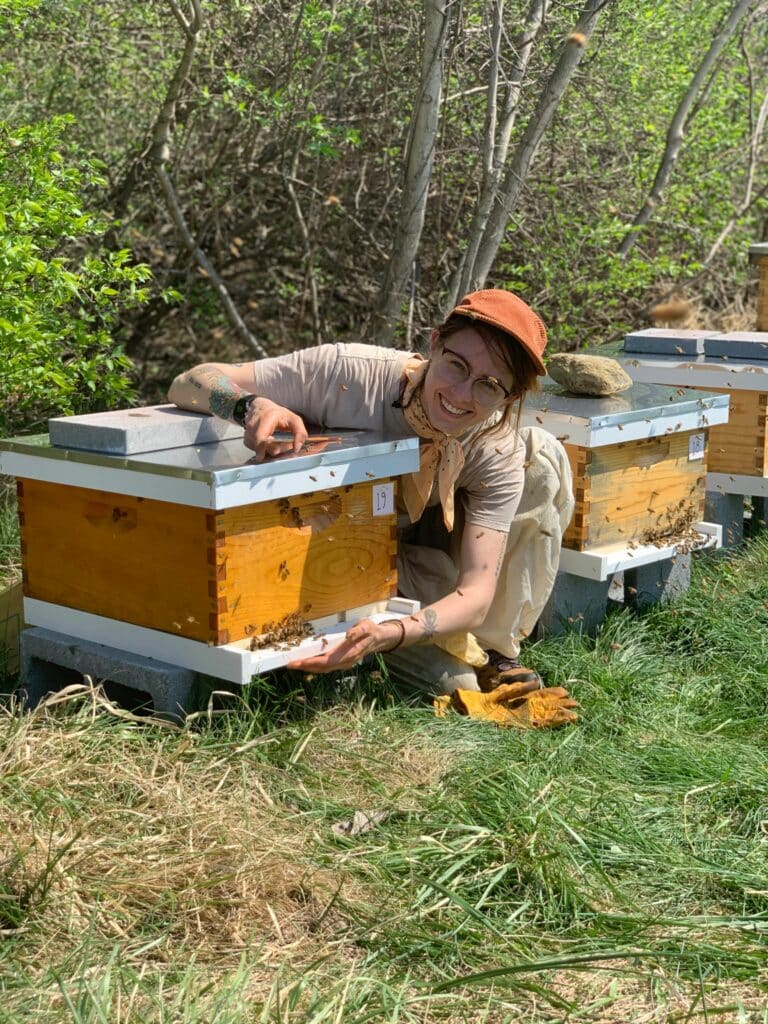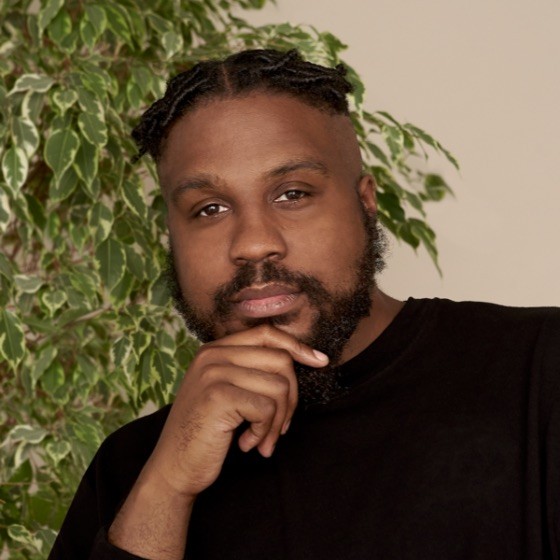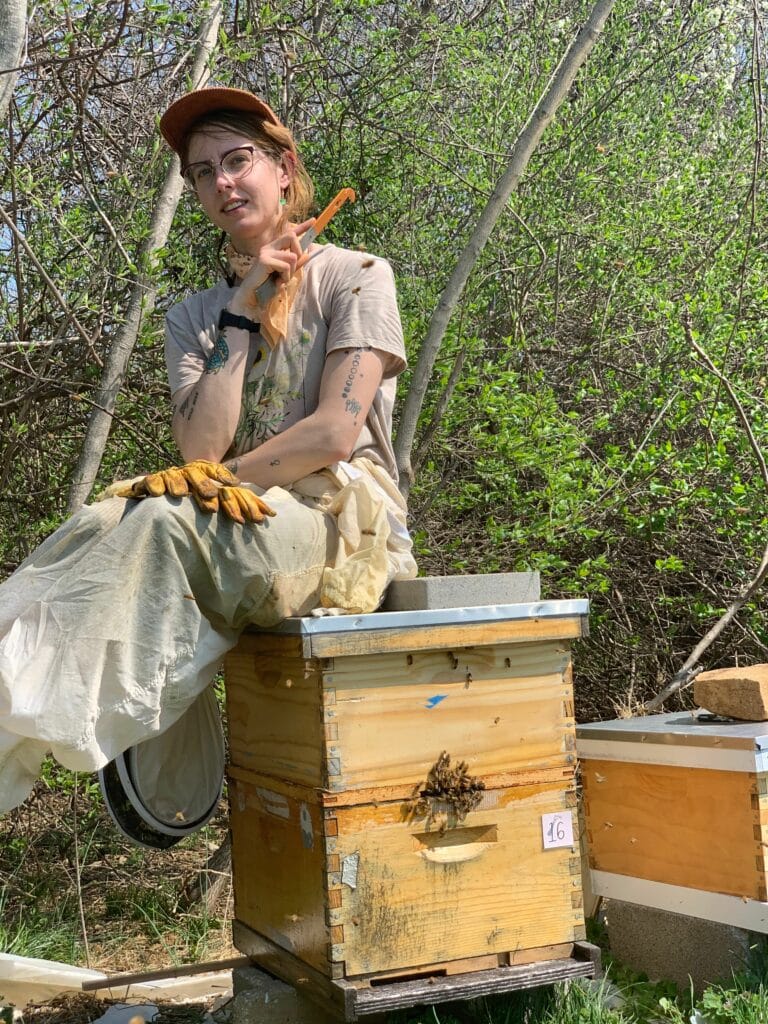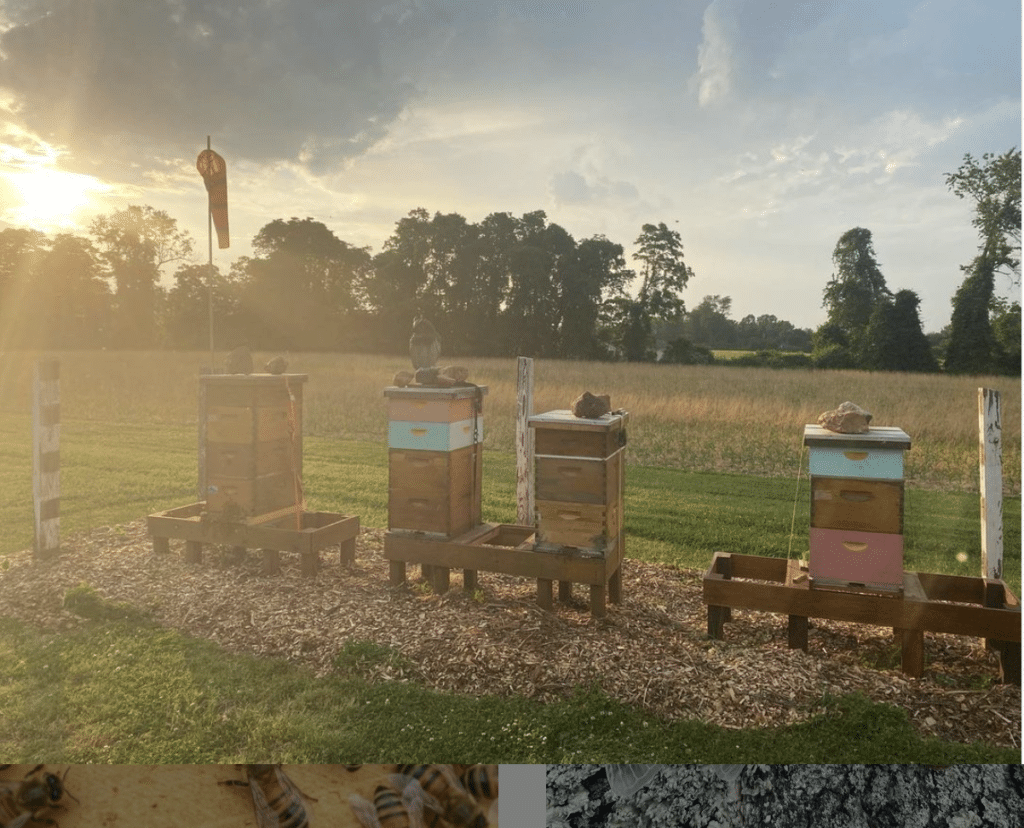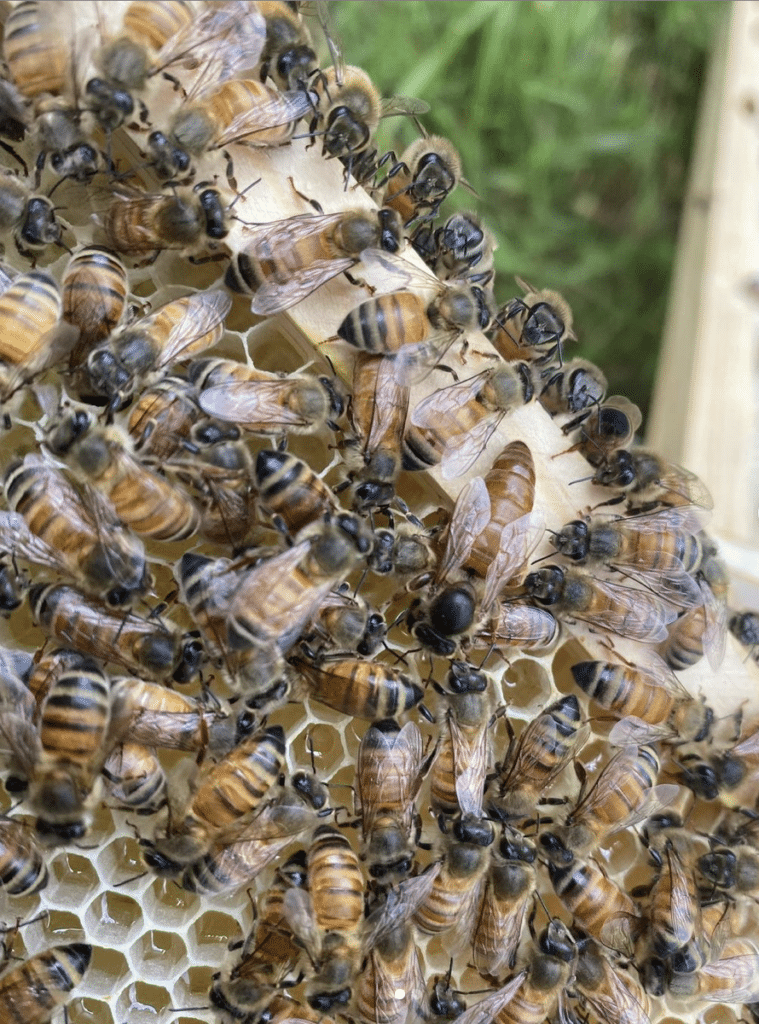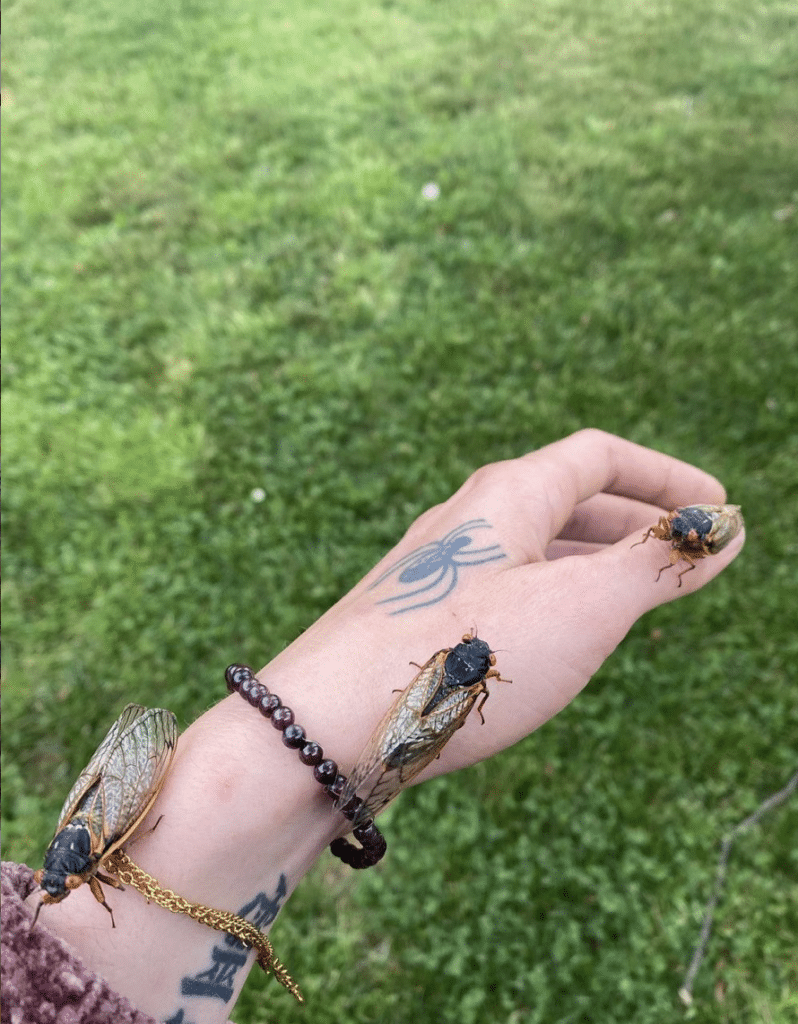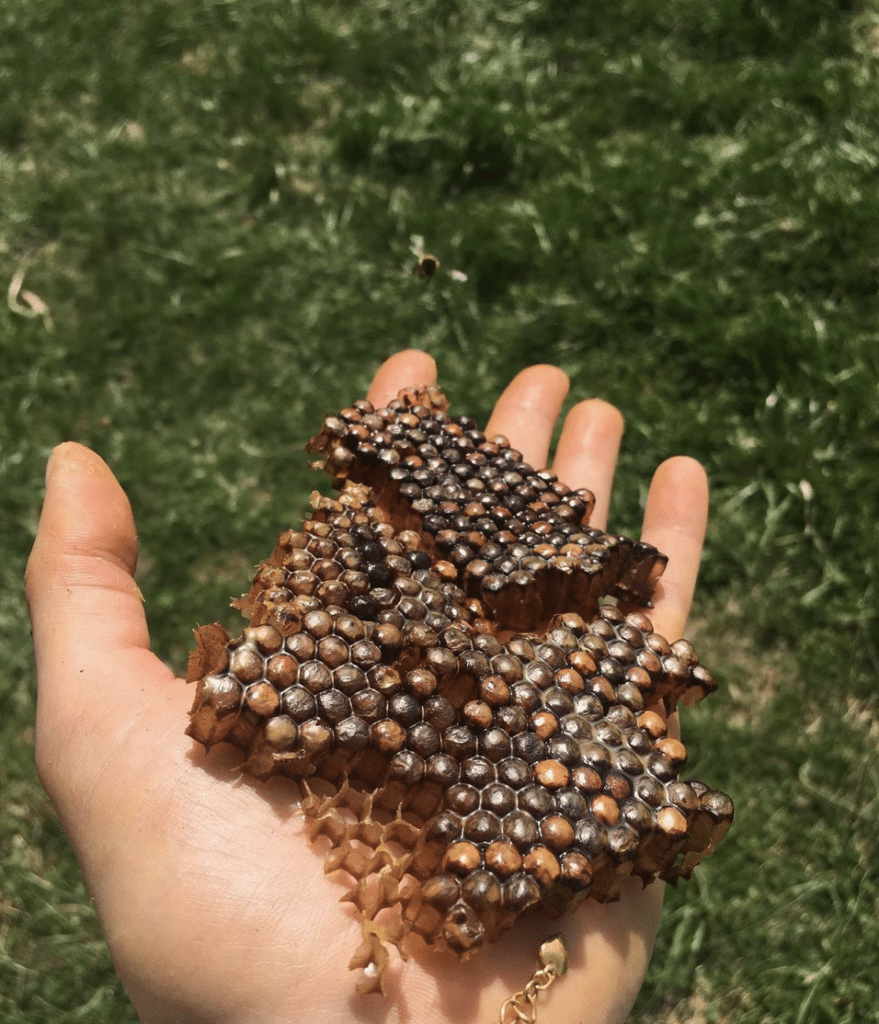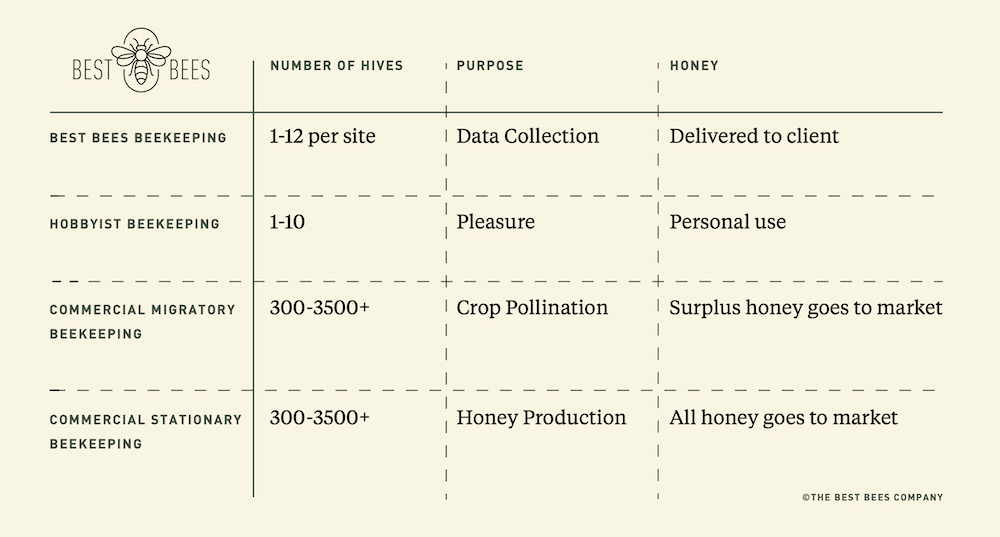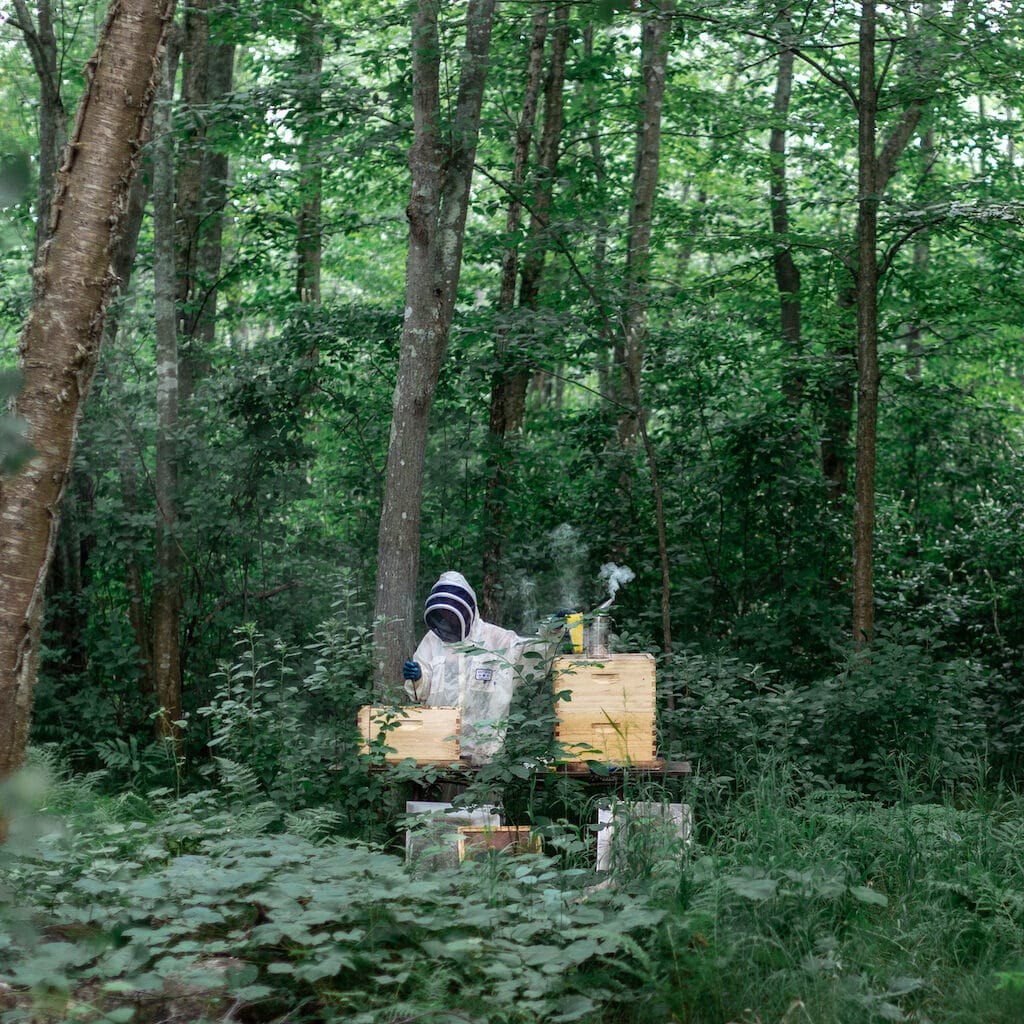If you happen to search the average age of beekeepers on the internet, the findings may surprise you. Beekeeping is often seen as a hobby profession, one that people often enter as they retire from their 9-5s.
A fairly recent Reddit post highlights that farmers along with beekeepers tend to be of an older age. One user comments, “I think the ‘save the bees’ hype is bringing in a wave of younger beekeepers.”
The new wave or next generation beekeepers are ushering in a new outlook on responsible beekeeping focusing on the importance of education and the practical learning one gains through understanding bee behavior.
According to Emily Lawes, Lead Beekeeper for The Best Bees’ DC region, beekeeping is about honoring the role that these little creatures play in our lives and more importantly, our ecosystem as a whole.
As a self-taught beekeeper, Emily is a proponent of hands-on approach to learning. Emily, who is just in their fifth year of beekeeping, says that they finally hit their stride when it comes to troubled hives and fully understanding bee math.
In conversation with Best Bees’ Creative Director, Paige Mulhern, Emily shares not one, not two, but three bee facts that enlighten even the most savvy and veteran beekeepers. If you’re not familiar with flower fidelity, you’ll want to read this interview in its entirety.
Continue reading below to learn more about Emily, how beekeeping informs their poetry and artistry, the importance of passing responsible beekeeping practices to the next generation, and how an inclusive work culture helps them truly appreciate the role of the worker bee.
What’s your name?
Emily Lawes
What are your preferred pronouns?
They / Them
Where are you from?
New Jersey, but I’m really from Hartford County
How long have you been at best bees?
I’ve been at Best Bees since 2017. This is my fourth year.
Time is flying by. That’s amazing. And what is your position and title?
Lead Beekeeper for the DC region.
How long have you been beekeeping? Was it always with Best Bees or were you beekeeping before?
I was a beekeeper before. I started 2016 when I moved to my grandmother’s farm and the space became available. I did that about a year before Best Bees reached out to me.
What was your favorite part about getting started with bees?
I think it was opening up a hive for the first time with my mentor Pat- Mr. Pat. Getting really overwhelmed by the smells of fresh wax and being able to stand next to a hive for the first time. And kind of getting over any fears of stinging insects. Seeing how gentle they were.
I remember the first visit. Watching them open it up and it was so cool.
Yeah, we had a lot to learn. How did you get into beekeeping?
I got into beekeeping after college, but the interest really started when I was in high school and my mom was working at the historical society. They were having a lecture about honeybees and it was this big, old gentle beekeeper making the presentation.
What I got from it was that the honeybee society is completely selfless. It’s all about furthering the future of the hive. Every bee is responsible for themselves and each other. I just thought that was a beautiful sentiment that I wish I could see mirrored in human society, totally.
When I moved into the country, I really wanted to get more involved as I was living on a farm. I wanted the land and the flowers to be able to be put to good use and to further my education and experience with nature.
Would you say that beekeeping was a catalyst for other interests in other parts of nature from a gardening perspective or kombucha, or the way you live your life in general? Would you say the bees gave you a new appreciation of nature?
I would say that I’ve always been into planting and nourishing plants. That was something my parents taught me. The more I learned about bees, the more I learned how important the bees are to our food system and natural foliage. They really encouraged me to learn more about humans, animals, insects and nature.
That kind of led to other inquiries about what other things I could grow, like ricci mushrooms and how they can be related to bee health.
Kombucha was just like a side job that I had, but also found very interesting. You use plants. You use tea to brew and you can pick really specific plants for flavor profiles and what the plants have to offer, the body of medicine. Those plants might have been pollinated by bees. It’s really cool. You can grow the plants, the flowers, the bees pollinate them and provide fruits and you can then use those fruits and flowers to then brew and then consume.
It’s really a beautiful cycle.
That’s gorgeous. This kind of goes into that idea that everything is interconnected—important insight gained from beekeeping. What else do you think is important about keeping bees or the work that you’re doing?
I’ve come to know the term hobby beekeeper as something you just do for fun on the side. But what I’ve come to understand is that this is not a part-time hobby or a part-time interest. This is something that takes up a huge chunk of my time, thankfully.
This is a practice that really requires education and experience that builds over time. We’re taking care of a lot of pollinators and it really involves learning the sight, the smells, the behaviors, the biology of the bees. As keepers, we should promote their success and health.
Learning about healthy hives and overwintering is crucial.
What you’re talking about, correct me if I’m wrong, is really like the importance of responsible beekeeping and how important your role as the caretaker of the hive is and how you’re learning the best practices.
It just so happens that beekeeping is a cool and beautiful aesthetic. It’s hip to have in your backyard, but it’s so much more than that. As a beekeeper, it’s my highest responsibility to not only share beautiful pictures, but to share education because beekeeping revolves around sharing information with each other so that we can promote healthy hives that are going to overwinter and continue to propagate.
I love that we’re just helping to put more bees out into the world responsibly and not for what I can get out of this and how this makes me look.
Tell me a little bit about your role, your day-to-day especially with your position as lead beekeeper. Explain to us what that means.
I’m relatively new to this position. Previously I had just been a regional beekeeper. On a bi-weekly basis or maybe once a month, I’d receive routes and go out to different regions within DC and northern Virginia.
I’d tend to maybe 2-10 hives that day. I’d check the level of brood for the babies, how much honey was present, if I noted any hints of disease, and made suggestions on what to do for the next visit.
Now my role as lead beekeeper is taking on more responsibility. I manage our reserve apiaries in Vienna, Virginia and Crystal, Virginia that totals some-30 hives. I kind of keep an eye on the notes of other beekeepers that check on the hives.
In between their visits, I review notes and see if any actions need to be taken to help the bees along such as adding more space, treating for mites, harvesting mites, making sure the Queen is laying, and help carry out those remedies as well as monitoring the reserve apiaries along with Nola, my regional supervisor.
I’m helping to monitor our troubled hives out in the field with clients. Trouble isn’t necessarily a bad term, it just means that the bees are having a problem whether it be they’ve gone queenless or they are exceedingly running out of space and need a box immediately.
I double check a hive if one beekeeper sees something that is questionable. In Alexandria, Virginia, they might say, I think I saw eggs. I review those notes and say, “Well it’s really important if we see eggs or not because that indicates there’s no queen and a hive needs a queen to continue.”
I then communicate with Nola and then confirm or deny what’s going on in the hives. I’m really a second set of eyes.
I’m not the doctor, but I’m like a little bee nurse.
One cool thing to highlight here is that to be a lead beekeeper requires a lot of expertise and knowledge of the more unpredictable side of beekeeping.
So, what would you say has been the most exciting thing you’ve learned from when you started beekeeping to what you know now, whether it be a certain hive behavior or something fascinating that you’ve seen like an a-ha moment in the field where you’ve gone, ‘Okay, I feel really confident in my beekeeping skills now.’
You know, I think the a-ha moment might have occurred this year over a couple of different visits. The amount of exposure to the hives I’ve gotten from Best Bees has informed me so much because there are so many situations that are trial and error where you have to try and assess what’s going on because the bees don’t always give you precise hints about what’s going on if they’re having trouble. You really have to decipher and read through the lines and observe all of their behaviors.
It’s really taken me about 4 to 5 years of beekeeping to recognize really small details. This year I would say I’ve felt like there’s been a natural transition into understanding more about queen rearing and the cycle of the queen.
I think there’s a term we like to use in beekeeping called, “bee math.” I think it’s so funny, but every worker bee, drone, and the queen have a cycle of birth. Being able to assess what’s going on in the hive at that current time and doing the math of when you need to return to see if what you did worked out is finally clicking for me this year.
We’ve done a lot more splits. We will take an artificial swarm and split by making sure one of the open frames has open-brood on it or you take the current queen and leave the original hive to raise their own queen, which is something I’ve been experimenting more with this year.
That is the kind of beekeeping that I have not advanced to yet. That takes so much experience and insight into that “bee math” to do that level of beekeeping.
The hives that I have at my folk’s house offer me a little more flexibility to experiment because they aren’t owned by a Best Bees client. The combination of having my own apiary and the numerous hives I visit at Best Bees has really allowed me to do more experimenting with taking a queen that looks strong based on hive observation.
They are really high honey producers, collect and build a lot of propolis, their brood pattern is ideal with edge-to-edge on the frame with honey surrounding. Getting to know all of the healthy and beautiful qualities of a hive and choosing to continue that line of genetics by breeding another queen through a swarm or split is what I’ve been experimenting with this year.
I’ve been reading more and learning from Ang [Roell]. I’ve been listening to what they have to say and through different seminars that talk about the importance of raising local genetics and queens that are acclimated to our region’s weather patterns as well as the amount of nectar that we have.
If you take a super-Southern hive, maybe in Florida, they might not weather as well up in Boston because they haven’t experienced such harsh winters. So the idea of breeding and rearing locally rings out to me.
That also goes to supporting your food and work ecosystem. Buying locally always impacts things in a way more positive light than sourcing from afar. It has way less impact on the environment and has a bigger impact on the farmers you’re supporting. I think it can be mirrored in raising bees.
I love that. What is your favorite part about working for Best Bees?
The work culture is so unbelievably positive. I’ve never worked with a group of people who are so kind, so open to communication and education before. It’s so refreshing and makes me feel really supported. It makes me feel like there’s so many resources for help, experimenting, and learning more.
Beside the bees being my favorite thing ever, it’s the people. I love working with my supervisor and the people in the field. Getting to participate in the staff meetings from afar via webcam is really heartwarming.
It makes me wish that I could also be in-person with so many people. Right now, it’s wonderful as it is.
There’s so much room for growth.
I’d also like to add, coming in a real close second is that Best Bees is about promoting honeybee health and population. More than a for-profit company, it’s a for-love and for-science effort that is really noble.
What is your favorite cool bee fact?
I guess I have two.
The one I always go to because I think it’s the most beautiful is that after a worker bee is born, her first rule within the hive is as a nurse bee that tends to other larvae and eggs that will soon turn into her sisters. She is responsible for feeding and caring for them.
It’s unbelievable that your first role as a thing on this planet is immediately caring for others. It makes me a little bit teary-eyed.
The fact about queens is that she relies on the workers to feed and groom her solely. She doesn’t do that herself. She allows herself to be fed because she doesn’t have the components to digest the food herself. I thought that was great.
So, does she get momma-birded by her children?
Yeah, basically. They eat it, digest it for her and regurgitate it for her from their little honey tummies.
I didn’t know that. It’s so cool. In most other aspects of nature, it’s the mom doing that!
She relies on them for sustenance and they rely on her to make more babies so the hive can survive.
Are you afraid of bees?
No, I’m not afraid of bees. I don’t think I’ve ever been afraid. As a kid, it never crossed my mind. I more or so have a case of arachnophobia. Working with bees has gotten me over my fears of creepy crawlies. I’m not afraid, but I do get some anxiety when they come close to my face, which I think is like a normal reaction if you have something with a stinger that comes close to your eyes or mouth.
Would you rather be a queen bee or a worker bee and why?
Oh, hands down a worker bee. I feel like I maintain that role as a worker bee within Best Bees. (Laughter). I don’t want to be fed and groomed, I want to be able to do the hard work. It’s satisfying.
As I grow and develop like bees do, I want to perform every job in the hive. They’re not really born with certain qualities that would allow them to leave the hive right away. It takes them time to grow and develop before they can go out and forage honey.
It takes time to learn, but the more time passes, the more you can do versus plopping out 2,000 eggs a day.
Also, the adventure of flying out into the world and finding flowers to taste nectar and honey and then coming back heavy, swollen, and happy— what’s better than that.
Another bee fact that I’ve just thought of is ‘flower fidelity.’ When bees go out, they tend to stick to one type of flower. They won’t pollinate and collect from different flowers like sunflowers, lavender, and then rosemary. They’ll stick to just one type of flower because it’s all about efficiency. They have to use their short life spans as efficiently as possible.
If you’re a gardener, it’s really smart to plant really large patches of one thing or another that support pollinators.
Yea, which is so incredible because there’s a delicate balance of creating a diverse habitat for them but also creating an abundance for each individual.
Yeah, everything within reason. Not too much excess and not too much dearth.
As an artist, illustrator, poet, and writer, and sometimes a musician, how has being a beekeeper inspired your creative side?
Definitely a couple different ways. Through poetry, it pops out here and there. The words come when they want to come. Usually when I’m at peace and with an open heart.
With drawing, there are so many opportunities for nature studies of honeybees and foliage. It’s incredible and really fun. Through illustration, it accompanies educational literature and information. Being able to pair drawings of bees, bee tools, honeycombs, and honey dippers paired with facts makes it easier to inform others.
If you could make an infographic or educational illustration about one thing beekeeping related at this very moment, what would it be?
I think this is linked to my parents always teaching me to always be prepared. I love creating tools and objects that have a beneficial use.
It would be fun to do an infographic about all of the standard tools that we as beekeepers use, but also the weird little things I keep in my car that you never know you’ll need like bobby pins, tweezers, pencils, markers, tape, toothpaste, and honey. That would be fun.
We’ll have to have a follow up meeting and make “Emily’s tool kit” come to life.
Aww, that would be adorable.
Is there any way people can see your illustrations or do you have any projects you’d love to promote?
I’m pretty lowkey as an illustrator. I’ve honestly been beekeeping nonstop since the season started.
If you want to see the stuff I do, you can visit my Instagram profile: @grilldcheeseplease
I really love posting pictures from out in the field. I’ve gotten a couple of shots of mice in overwintered hives. Last year, I opened up a hive and found a monarch chrysalis. You can follow my adventures that way.
Any other topics you’d like to talk about?
When I started beekeeping, I joined the Susquehana and the Maryland State beekeeping association and attended meetings. What I found is that I was the youngest person there each time. I felt like I was lacking that I wasn’t able to connect with people my age.
When Best Bees offered me a position, I came to find that I was working with a similar age group with similar interests. There’s something that feels really good and encouraging about that.
As older beekeepers retire, there is for sure a next generation of people that are just as passionate about helping the honeybee population across the country and the world. It feels special to be a part of that.
Also, it’s a really great platform in reaching out and connecting with children to reach out to the next generation of beekeepers after us.
It’s about honoring these little creatures we tend to and respecting that they have needs. You can develop a relationship with a hive if you go back and forth with it if you’re slow, steady, patient, and happy.
Unless it’s hot and raining.
One more thing: As a beekeeper on my own, I love when people approach me or ask me for advice. I love to offer basic advice if you’re interested in starting beekeeping. I can speak to the importance of educating one’s self and putting aside the time and money to do this.
You’re taking care of a live colony that deserves just as much as your doggy-woggy or kitty-cat.


